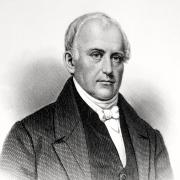To succeed in today's job market, a variety of skills are needed, from problem-solving and analysis to creativity and teamwork. But what's the best approach to teaching our children these vital tools?
“Whether pupils wish to pursue science careers or not, we understand the importance of a strong core knowledge of STEM (science, technology, engineering and mathematics) subjects,” says Vicky Standing, a science teacher at Derby Grammar School in Littleover.
“The landscape for students leaving school now is everchanging. With new technologies and the evolving digital world, we’re preparing our pupils for jobs that don’t even exist yet, which is incredibly exciting.”

We spoke to Vicky and Derby Grammar A-level student Emily Welch, who told us how STEM learning programmes can provide a solid foundation for a successful future.
Q: Vicky, why is teaching knowledge of STEM subjects at an early age so crucial?
A: At Derby Grammar, we incorporate STEM into the curriculum at Reception age, so these problem-solving and analysis skills become natural from the beginning of their education. We have begun a series of STEM mornings in our Infants’ School, which asks the important questions: why does ice cream melt, which food produces the most energy and why does chocolate taste so good?
Our aim is to relate real situations to what we discuss in the classroom, maintaining an enthusiasm and interest in the subjects as they move through school. Giving younger students an understanding of science and technology within society will help to keep them informed, question things they’re told and delve deeper into different concepts as they get older.

STEM creates so many opportunities for children, and we actively promote the message of these careers being accessible to both genders.
Q: Emily, what would you say to girls interested in pursuing a career in STEM?
A: I chose Derby Grammar because the curriculum had a strong focus on mathematics and engineering compared to other all-girls schools I looked at. I have grown up racing cars on the racetracks and realised there aren’t that many women. In my race series (the group which I race in), there are a couple of girls who compete, but the majority are boys. I want more people, girls or boys, who are interested in engineering, to keep pushing through into the engineering sector.
I always loved to read ‘how to’ or ‘how things work’ books and magazines, and developed a curiosity about how things work. I think particularly for women, there are lots of opportunities to pursue STEM careers due to the high demand for women engineers across universities and businesses.
Q: Vicky, how does Derby Grammar help its students build a brighter future through STEM?
A: The school nurtures interest in these subjects with students right through to A-level, where they are supported in pursuing their scientific studies, hobbies and careers. At Derby Grammar, we also appreciate the role that computing and technology will play in every aspect of our students’ lives, whether they choose STEM subjects or not.

With vast opportunities and attractive starting salaries, careers in STEM are becoming more popular with young people. For decades, there has been a desire to encourage the next generation to study science, technology, engineering and mathematics due to a shortage of skilled workers ready to fill roles in a burgeoning technology sector.
I encourage my students to do wider reading, ask questions about changes in technology and take an interest in the news. Making these links to their studies helps them understand the relevance of STEM in the outside world.
Q: What opportunities do you offer to improve students’ STEM-focused skills?
Vicky: Derby Grammar arranges a wealth of opportunities for all their students, especially those studying GCSE and A-level. These include career talks on medicine and engineering as well as specialist talks from local employers such as Rolls-Royce, so that students see the practical side of business for themselves. We also offer trips to museums and other organisations, an annual ‘careers fair’ and university visits.
We want to broaden the horizons of our students about what’s out there and we are supported by our STEM Govenor, Neil Chattle, who has worked in the aviation industry for over 40 years and is an experienced STEM Ambassador.

Derby Grammar takes part in ‘Bebras’, an international computing competition which challenges students from over 50 countries to use their logical and computational thinking skills. This year, 14 students from Derby Grammar School were within the top 10 per cent nationally and have been invited to take part in the Oxford University Computing Challenge.
Students can partake in the Olympiad too, which is another international competition involving a variety of challenges which require answers to tricky problem-solving questions. This is an exciting opportunity for Year 10 to 13 students, although we are beginning to roll this out to all year groups.
We also run a popular robotics club where students experiment with microcontrollers to design and build programmable robots.
Our commitment to STEM isn’t just for our students. We participate in a rolling programme of apprenticeships in computing, which supports all our staff in school.
To find out more about STEM learning and how it can improve your child’s education, visit derbygrammar.org/admissions/how-to-apply. For enquiries, contact schooloffice@derbygrammar.org or 01332 523027.




























